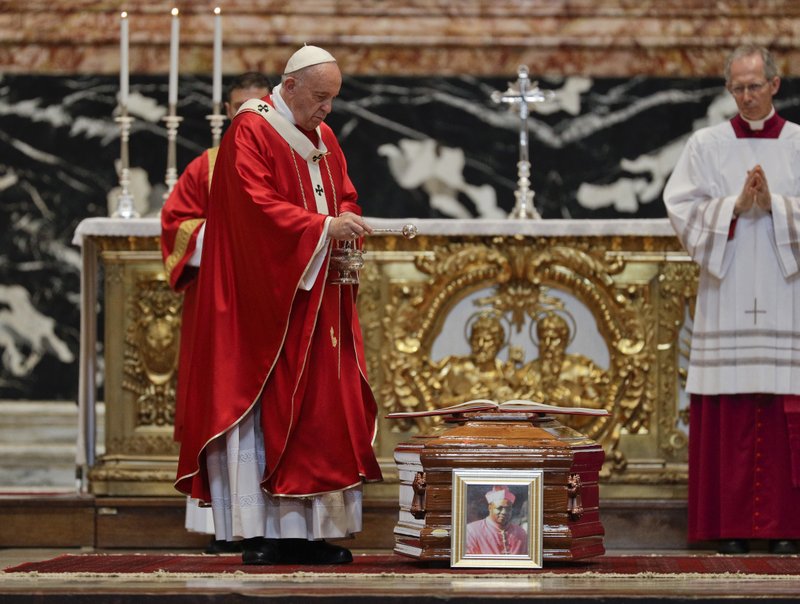VATICAN CITY -- The Roman Catholic Church on Monday formally opened debate on ordaining married men into the priesthood to meet the pastoral needs in remote parts of the Amazon.
The call for study on the proposal was contained in the working document, released Monday, for an October meeting of South American bishops on the Amazon.
The document, prepared by the Vatican based on input from the region, affirmed that celibacy is a gift for the Catholic Church. But it suggested that officials study "the possibility of priestly ordination for older men, preferably indigenous and respected and accepted by their communities, even if they have stable families, for the region's most remote areas."
The idea of ordaining so-called "viri probati" -- married men of proven virtue -- has been around for decades to cope with a priest shortage and decline in vocations overall. But it has drawn fresh attention under Pope Francis, history's first Latin American pope, thanks to his familiarity with the challenges facing the Amazon church.
The Oct. 6-27 meeting on the sacramental and environmental needs of the Amazon will draw bishops from Bolivia, Brazil, Colombia, Ecuador, French Guiana, Guyana, Peru, Suriname and Venezuela.
Brazil's bishops have long pushed for the church to consider ordaining viri probati to minister in remote parts of the Amazon where by some estimates there is one priest for every 10,000 Catholics.
The celibacy question has been a mainstay in Catholic debate because it is a discipline, not a doctrine, and therefore can change. The church has had the tradition since the 11th century, imposed in part to spare the church the financial burdens of providing for large families and to ensure that any assets of the priest would pass to the church, not his heirs.
Proponents of a relaxation of the rule say more men would consider a vocation to the priesthood if they could marry.
Opponents say relaxing the rule for the Amazon will likely fuel calls for it to be relaxed elsewhere. Already, married men can be ordained in the Eastern rite Catholic Church, and married men who convert from Protestant churches can be Catholic priests.
Pope Francis has made clear that the priesthood's broader commitment to celibacy remains intact, and that it remains generally closed to married men.
Still, the proposal marks a potential pivot for the church, especially in the Southern Hemisphere, where it sees its future.
Limited ordination of married men is consistent with Francis' push to address different needs in different parts of the world, and to be more inclusive of people, even if they live outside the church's usual dictates, said the Rev. Giuseppe Buffon, a professor of church history at the Pontifical Antonianum University in Rome.
"The revolution for Francis is to give importance to the local populations and their cultures," he said. "He is thinking locally."
In addition to ordaining married men, the document called for the synod to identify "the type of official ministry that can be conferred on women."
It said women, who already play important roles in indigenous communities, must be guaranteed leadership roles. But it stopped short of recommending debate on whether women could be ordained as deacons.
One of the organizers, Monsignor Fabio Fabene, said the female diaconate was essentially off the table because Francis has recently determined that the issue needs further discussion.
The Vatican proposal also suggests that the church better incorporate indigenous "music and dance, in native languages and clothes, in communion with nature and with the community." What is needed, the document said, is to essentially recover aspects of the primitive Christian church.
Information for this article was contributed by Nicole Winfield of The Associated Press; and by Jason Horowitz of The New York Times.
A Section on 06/18/2019
